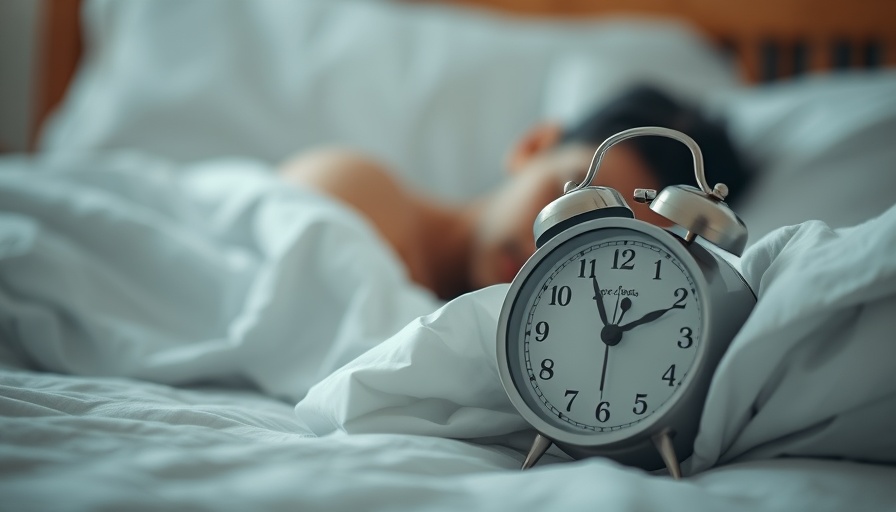
The Silent Threat: Sleep Deprivation and Cardiovascular Risks
When we think about cardiovascular health, we often consider factors such as diet and exercise. However, recent research from Uppsala University has highlighted a critical overlooked aspect: sleep. The findings suggest that even a few nights of inadequate sleep can activate molecular mechanisms that significantly increase the risk of heart disease. With nearly half of all Swedes reporting regular sleep disturbances, this concern is one that's becoming all too common, particularly among shift workers.
The Science Behind Sleep Deprivation
The study published in the journal Biomarker Research investigated how sleep affects inflammation in the body, a key factor linked to cardiovascular disease. Dr. Jonathan Cedernaes, the lead investigator, noted that many large studies have often focused on older adults at risk, making this research on younger, healthy individuals particularly intriguing. The study examined 16 young men with healthy sleep habits, measuring their protein levels after differing sleep patterns—normal and sleep-deprived.
Understanding the Biological Impact of Lack of Sleep
During the experiment, participants had their meals and physical activities strictly controlled. It revealed a worrying trend: after just a few nights of reduced sleep—averaging four hours—the levels of inflammatory proteins in their blood surged. These proteins have ties to serious conditions such as heart failure and coronary artery disease. The implications are profound; they suggest that sleep isn't just a restorative period for our bodies, but a critical component of our cardiovascular health.
Connections Between Sleep, Inflammation, and Heart Health
Inflammation is the body's natural response to stress and injury, yet chronic inflammation can lead to severe health complications. The spike in inflammatory markers observed in the Uppsala study indicates that lack of sleep could be a significant driver of heart issues over time. It prompts us to consider: how much of our heart health hinges on simply getting a good night's sleep? This research reinforces the idea that prioritizing sleep is as crucial to our health as maintaining a balanced diet and regular exercise.
Practical Tips to Enhance Sleep Quality
If you're struggling with sleep, integrating a few beneficial practices into your routine might help. Here’s how you can optimize your sleep for better recovery and health:
- Establish a Sleep Schedule: Try going to bed and waking up at the same time every day to regulate your body clock.
- Create a Relaxing Bedtime Routine: Engage in calming activities before bed, like reading or meditating, to signal to your body that it's time to wind down.
- Limit Screen Time: Reduce your use of electronic devices at least an hour before sleep as blue light can interfere with melatonin production.
- Optimize Your Sleep Environment: Ensure your bedroom is dark, cool, and quiet to create an ideal sleeping environment.
A Broader Perspective on Sleep in Society
This research comes at a time when sleep problems are rife in our modern society, exacerbated by stress and a fast-paced lifestyle. Many individuals may be unaware of the serious implications that their sleep (or lack thereof) may hold for their cardiovascular health. Given its pervasive impact, tackling sleep issues should be viewed as a public health priority.
Steps Towards Better Sleep and Heart Health
Overall, the findings from Uppsala University serve as a critical reminder of the connection between sleep and overall health. Individuals struggling with sleep disorders should seek to address their sleep quality proactively. As research continues to uncover the intricate links between sleep, inflammation, and cardiovascular disease, let us take these insights to heart—quite literally. Practicing better sleep hygiene isn’t just good for your mind; it’s essential for your heart.
 Add Row
Add Row  Add
Add 




Write A Comment